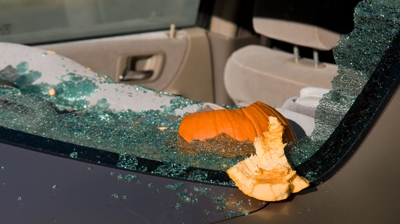Car crashes that occur on snowy or icy roads can be complicated. They often involve multiple parties and many factors.
This can raise the question of who is ultimately at fault when a car crash happens in winter weather.
For example, if a car skids on an icy road and hits another car, who is at fault? Is it the driver of the car that skidded? Is it the municipality responsible for plowing the roads? Does the insurance company consider the weather to be responsible for causing the crash, thereby making it an “Act of God?”
Below, we’ll explain who is usually considered at-fault in car crashes on icy roads.
Who is liable when a car crash happens on a snowy or icy road?
While the situation might be complicated, the answer is usually fairly simple. When we make the choice to drive in winter weather, we are expected to drive responsibly. Specifically, we must drive with “reasonable care.” That means driving at a speed that is appropriate for the conditions. It also means using caution, limiting distractions and being aware of potential hazards.
If a driver fails to do those things and a car crash happens as a result, the driver can be found at least partially at fault for the wreck.
In our example above, even if the car was going below the speed limit at the time of the crash, if the driver was going too fast for the conditions, they can still be held responsible.
There are some cases where a municipality or maintenance company can share responsibility for the crash. If the road wasn’t properly plowed or sanded, for example, and that contributed to the car wreck, they may be held partially liable.
In most cases, though, car accidents that occur in winter weather are the responsibility of the driver. When we get behind the wheel, we are taking on a responsibility to drive safely. That means being aware of the conditions and making good choices. If we don’t do those things and a car crash happens, we can be held accountable.
Is a car accident in winter weather considered an ‘Act of God’?
Insurance companies sometimes might try to deny responsibility for a crash by claiming it was an “Act of God / Nature.” However, that is rarely the case.
In order for an insurance company to successfully deny coverage based on an “Act of God” argument, the insurer would have to prove that the accident could not have been foreseen or prevented by any human measures.
For example, let’s imagine a car driving through a blizzard in heavy, stop-and-go traffic. Visibility is limited. As the car is traveling down the road, it comes up on the car ahead of it. The driver slams on their brakes, but with the slick conditions, the car hits the car in front of it.
The insurance company might try to say that the crash was caused by an “Act of God” because the driver had no control over the conditions. However, the driver still had a responsibility to drive with caution. If the driver had been driving more slowly, they may have been able to avoid the car in front of them. In this case, the insurance company would likely be unsuccessful in using an “Act of God” argument.
While car accidents that occur in winter weather can sometimes be complicated, ultimately, the driver is usually responsible for taking care to drive safely under the conditions. If a driver fails to do so and a car crash happens, they can be held accountable.
How to avoid a car accident in snowy or icy weather
There are some basic steps you can take to help avoid car accidents in winter weather.
- Make sure your car is ready for the conditions. That means having good tires with plenty of tread. Inflate your tires to their specified levels, and make sure your car’s brakes are in good working order.
- Give yourself extra time to get where you’re going. Winter weather can often lead to delays, so it’s important to leave early enough that you don’t have to rush.
- Drive slowly and carefully. This is especially important on bridges and overpasses, which can freeze before other parts of the road.
- Increase your following distance. It takes longer to stop on slick roads, so you’ll want to leave more space between you and the car in front of you.
- Turn your headlights on. This will help you see, and it will also help other drivers see you.
- If you do start to slide, don’t panic. Take your foot off the gas and turn into the skid.
If you take these steps and drive carefully, you can help avoid car accidents in winter weather.
What is black ice?
Black ice is a thin layer of ice that forms on the road. It’s often difficult to see, which can make it especially dangerous.
Black ice can form when the air temperature is at or below freezing and there is moisture on the road. The moisture can come from rain, melting snow or even car exhaust.
When these conditions come together, black ice can form quickly. Black ice typically forms on bridges, overpasses and shady spots on the road.
If you’re driving and come up on one of these areas, slow down and be cautious. It’s important to brake slowly so you don’t lose control of your car.
What should you do when you encounter black ice?
If you do encounter black ice, the best thing to do is to slow down. Sudden braking can cause you to lose control of your car.
If you start to slide, don’t panic. Take your foot off the gas and turn into the skid. This will help you regain control of your car.
If you have trouble controlling your car or you start to spin out, try to stay calm and steer in the direction of the spin. If you can, gently brake to slow down.
Experienced St. Louis car crash lawyers
If you’ve been in a winter weather car accident, the experienced car crash lawyers at Niemeyer, Grebel and Kruse can help. We’ll investigate your accident and work to get you the compensation you deserve. Contact us today for a free consultation – (314) 350-1900
.






